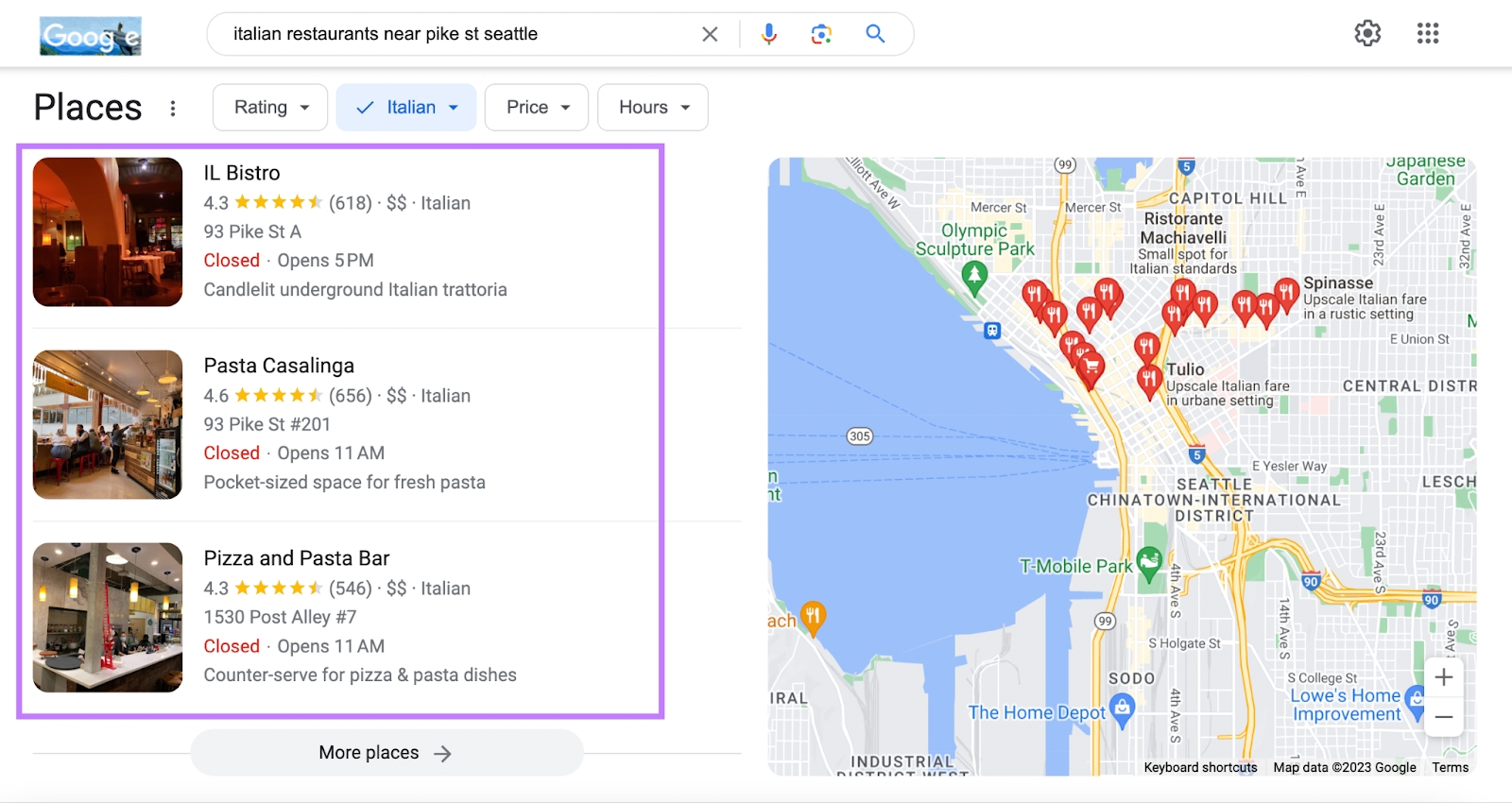Tips to improve local SEO and prioritize local search visibility
Local SEO, or local search engine optimization, is a digital marketing strategy aimed at improving a business's visibility in local search results on search engines like Google, Bing, and Yahoo. It involves optimizing various elements of a website and online presence to attract more local customers and increase foot traffic to physical locations.

Geographically Targeted Optimization:
Local SEO focuses on optimizing a business's online presence for location-specific keywords and search queries. This includes incorporating city names, neighborhoods, and other geo-specific terms into website content, meta tags, and headings to signal relevance to local searchers.
Google My Business (GMB) Optimization:
GMB is a free tool provided by Google that allows businesses to manage their online presence across Google Search and Maps. Local SEO involves optimizing and maintaining a GMB listing by providing accurate business information, such as name, address, phone number (NAP), business hours, categories, and website URL.
Local Citations and Directories:
Local SEO includes ensuring consistent NAP information (name, address, phone number) across online directories, review sites, and local listings. This consistency signals trustworthiness to search engines and helps improve a business's visibility in local search results.
Localized Content:
Creating content tailored to the local audience is an essential aspect of local SEO. This may include blog posts, articles, and landing pages that address local topics, events, news, and customer needs. By providing valuable and relevant content to local searchers, businesses can attract more local traffic and engagement.
Customer Reviews and Ratings:
Reviews and ratings from satisfied customers play a crucial role in local SEO. Positive reviews not only improve a business's reputation but also influence its visibility in local search results. Encouraging customers to leave reviews on platforms like Google, Yelp, and Facebook can boost local search rankings and attract more customers.

tips to improve local SEO and prioritize local search visibility:
Optimize Google My Business (GMB) Listing:
- Provide detailed information: Fill out all fields in your GMB profile, including business name, address, phone number (NAP), website URL, business hours, and categories.
- Use high-quality images: Upload photos that showcase your business, such as storefronts, products, and team members, to make your listing more visually appealing.
- Regular updates: Keep your GMB profile up-to-date with any changes to your business information, such as new locations, holiday hours, or contact details.

Use Local Keywords:
- Keyword research: Identify local search terms related to your business, such as "plumber in [city]" or "best coffee shop near me," and integrate them naturally into your website content.
- Long-tail keywords: Target longer, more specific keyword phrases that indicate local intent and have less competition, increasing your chances of ranking in local search results.
Create Location-Specific Landing Pages:
- Customized content: Tailor each landing page to a specific location or service area, highlighting relevant information such as local testimonials, customer reviews, and promotions.
- Clear call-to-action (CTA): Include a clear CTA on each landing page to encourage visitors to take action, such as contacting your business, making a purchase, or scheduling an appointment.

Optimize On-Page Elements:
- Title tags and meta descriptions: Craft compelling and descriptive titles and meta descriptions that include local keywords and entice users to click through to your website.
- URL structure: Use clean and descriptive URLs that incorporate relevant keywords and indicate the location or topic of the page.

Build Local Citations:
- Consistent NAP information: Ensure that your business name, address, and phone number are consistent across all online directories, review sites, and social media platforms.
- Quality over quantity: Focus on building citations on authoritative and relevant websites within your industry or local area to improve your credibility and visibility in local search results.

Encourage Customer Reviews:
- Review management: Prompt satisfied customers to leave positive reviews on platforms like Google, Yelp, and Facebook, and respond promptly and professionally to all reviews, demonstrating your commitment to customer satisfaction.
- Showcase positive feedback: Highlight positive reviews and testimonials on your website and social media channels to build trust with potential customers and encourage conversions.

Optimize for Voice Search:
- Natural language optimization: Optimize your content for voice search by using conversational language and answering common questions that users may ask when searching for local businesses or services.
- FAQ content: Create FAQ pages or blog posts that address frequently asked questions related to your business, products, or services, and optimize them for voice search queries.

Leverage Local Link Building:
- Relationship building: Build relationships with local influencers, businesses, and organizations through networking, collaborations, and community involvement to earn backlinks from reputable local websites.
- Local events and sponsorships: Sponsor local events, charities, or organizations and participate in community initiatives to increase your brand visibility and attract local backlinks.

Create Local Content:
- Hyperlocal content: Develop content that is specific to your local area, such as city guides, neighborhood spotlights, or local event coverage, to engage with your community and attract local traffic.
- User-generated content (UGC): Encourage customers to share their experiences with your business on social media and feature user-generated content on your website to showcase authentic local interactions.

Monitor and Analyze Local SEO Performance:
- Track key metrics: Use tools like Google Analytics, Google Search Console, and local SEO platforms to monitor organic traffic, keyword rankings, click-through rates, and other relevant metrics.
- Performance analysis: Analyze the effectiveness of your local SEO efforts and identify areas for improvement by comparing performance over time, tracking changes in rankings, and reviewing user engagement data.

Stay Consistent and Adapt:
- Regular audits: Conduct regular audits of your local SEO efforts, including your website, GMB profile, citations, and online reviews, to ensure consistency and accuracy across all channels.
- Stay updated: Stay informed about changes to local search algorithms, industry trends, and consumer behavior to adapt your local SEO strategy accordingly and maintain your competitive edge in the local market.
By implementing these tips and prioritizing local SEO, businesses can enhance their visibility in local search results, attract more local customers, and drive foot traffic to physical locations. Local SEO optimization is essential for businesses looking to establish a strong online presence and remain competitive in their local market.

Conclusion
In conclusion, prioritizing local SEO is crucial for businesses aiming to strengthen their online presence and attract customers within their local communities. By implementing the strategies outlined above, businesses can enhance their visibility in local search results, increase website traffic, and drive foot traffic to physical locations. From optimizing Google My Business listings to creating location-specific content and building local citations, each step plays a vital role in improving local search visibility and attracting local customers.
Furthermore, staying abreast of emerging trends, such as voice search optimization and user-generated content, allows businesses to adapt their local SEO strategies to evolving consumer behaviors and preferences. Regular monitoring and analysis of local SEO performance enable businesses to identify areas for improvement and refine their strategies for maximum effectiveness.
Ultimately, by prioritizing local SEO efforts and providing valuable, localized experiences for their target audience, businesses can establish themselves as trusted and reputable entities within their communities, driving sustainable growth and success in the competitive digital landscape.







.png)






